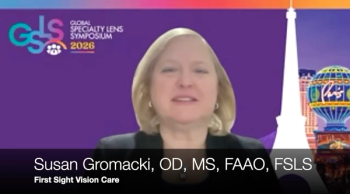
How to reach different generations of patients most effectively
Overcoming generational differences means not only understanding each generation, but respecting them all.
Overcoming generational differences means not only understanding each generation, but also respecting them all, Dr. Gerber said in a presentation at the SECO International meeting in Atlanta. Dr. Gerber, who retired in 2004 from 23 years of private practice, is president of The Power Practice, a practice management-consulting firm.
Generalizing generations
Gen Xers, many of whom grew up in single-parent homes as latchkey kids, gravitate toward a friendly work environment. They are individualistic, independent, and often prefer big-picture-type guidance. Millennials, on the other hand, were heavily nurtured and structured in their upbringings. They tend to seek structure in a supportive work environment. They are team players who need guidance and crave step-by-step instructions, Dr. Gerber said.
While gen Xers accept diversity, millennials celebrate it. Gen Xers tend to reject rules; millennials would rather rewrite them. Gen Xers mistrust institutions and embrace and use technology. Millennials think institutions, often highly regarded by older boomers, are irrelevant. They tend to be so comfortable with technology that they create it rather than simply use it, according to Dr. Gerber.
Get into their worlds
"The way you respect the millennial is to text the millennial," he said. While a baby boomer might prefer that your staff call and let them know that their glasses are in, a millennial and even a gen Xer would often opt for a text message.
Dr. Gerber said that when it comes to tailoring your practice to the generations, you should focus on one and accommodate the others.
"You can't be all things to all customers or you'll go out of business," he said.
An office designed for boomers might look more like the Ritz Carlton, while one for millennials could resemble an Apple retail store. The background music for a boomer-focused practice? Sinatra, perhaps. Coldplay might be more relevant to the younger generations.
"This does not mean that you can't treat the other generations; it does mean that you have to accept that you will lose some of the ones that you are not catering to," Dr. Gerber said.
Practices that have a large boomer patient-base but want to do more for their gen Xer or millennial clients, for example, should consider bringing in an associate from that younger generation, he said.
Communication channels
The optometrist's approach to marketing would be entirely different for boomers and for millennials, Dr. Gerber explained. Boomers would gravitate more toward the traditional advertising venues-from newspaper and magazine, to direct mail, radio, and the Web. Millennials are looking to congregate on social networking hubs, such as Facebook or Twitter, where they can be interactive.
"The challenge with millennial marketing is it changes so quickly that you have to stay on top of it," he said. "Better yet, hire a millennial to do your marketing."
Baby boomers complaining that millennials are not loyal employees are not far off the mark, according to Dr. Gerber.
It is not that the younger generations do not have ambition, Dr. Gerber noted, adding that their priorities are just different from those of the loyal baby boomers. Boomers might look at 2 weeks of vacation a year as the norm. Gen Xers and millennials tend to want as much time off as possible, in order to enjoy their lives, and times takes on a new meaning for them, he said.
"When an Xer shows up 10 minutes late for work, the Xer thinks, 'So what? There's nobody here. What's the big deal?'" Dr. Gerber said.
The boomer boss can't change the employees' attitude, but he or she can reason with them on their terms. For example, Dr. Gerber explains that relationships outside of work are significant to the younger generations. The boomer boss might explain that the millennial's relationships with patients and other staff could be impacted if they are not on time.
Training and managing staff is often markedly different between gen Xers and millennials. Dr Gerber explained that millennials are accustomed to structure and handholding. They crave positive feedback. But with a gen Xer, optometrists often find it is as simple as delegating a task and sending the Xer on his or her way.
"Millennials are the microwave, drive-through generation. They want it, and now. Instant gratification becomes a challenge to keep the millennial in the fold. As soon as you see them doing something right, give positive praise at the point of contact," he said. "Millennials expect you to be the boss. That said, they want to be listened to. When millennials watch American Idol, they want to text their votes and be counted."
The key, Dr. Gerber said, is not to try to fix the differences.
"Many boomers take the approach, 'How do I fix that?' You can't. That's how they are. You cannot get one generation to think like the other. As best you can, set up circumstances so that they can thrive [in] their ways," he said.
Newsletter
Want more insights like this? Subscribe to Optometry Times and get clinical pearls and practice tips delivered straight to your inbox.















































